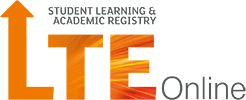This article has been created to introduce and/or remind staff of the benefits of using journals in Blackboard Ultra as part of the teaching, learning and assessment process. It provides an overview of the advantages of journals, practical use-case examples, and a quick setup instruction set, with links to more detailed technical guides for further assistance.
Blackboard Ultra includes a journal tool that allows students to reflect on their learning, articulate their thought processes, and document their progress over time. By default, journals are private, meaning only the student and module leaders can view and update them (unless configured otherwise). Journals foster deeper engagement, encourage self-reflection, and build authentic, personalised learning experiences.
Blog contents
- Unlocking the Benefits of Journals for Assessment
- Journal use-case examples
- Quick Setup Guide for Journals in Blackboard Ultra
- Conclusion
Benefits of using Journals for assessment
Journals offer numerous benefits for both formative and summative assessments, making them a valuable tool in any module leader’s toolkit.
- Formative Assessment: Journals allow students to document their learning journey, enabling module leaders to provide ongoing feedback. This iterative process encourages critical thinking and continuous improvement.
- Summative Assessment: Journals can be evaluated as a standalone assignment, encouraging originality and depth of understanding in the learning process.
- Support for Authentic Assessment: Journals allow students to engage in reflective practices that align closely with real-world tasks and professional expectations. Journal entries are unique to their experiences and learning and help to develop a deeper understanding of concepts, critical thinking and problem-solving abilities.
- Reduction of Academic Misconduct: By focusing on personalised, process-oriented tasks (those that focus on the journey of learning rather than just the final outcome), journals make it difficult for students to rely on ‘Artificial Intelligence’ tools or plagiarise.
Use-Case Examples
Here are some practical examples of how journals could be and are being used across various disciplines at Teesside University to enhance student learning and engagement.
Medical Studies
- Reflective Clinical Practice: Students document their experiences during clinical placements, reflecting on interactions with patients, diagnoses, and treatment plans. This helps them connect theory to practice while developing professional skills.
- Case Studies and Diagnostic Journals: Students can analyse and document specific patient cases, recording their thought processes and reasoning in diagnosing conditions and recommending treatments.
Sports Therapy
- Progress Tracking: Students record the progress of a simulated or real client during therapy sessions, reflecting on the effectiveness of different techniques or treatment plans.
- Video Journals for Movement Analysis: Students upload short video clips of clients performing exercises and write reflections on biomechanics, posture, and progress.
Business and Management
- Entrepreneurship Logs: Students reflect on the development of a business plan or project, documenting key decisions, challenges, and learning outcomes.
- Leadership Journals: Students reflect on their experiences in group projects, focusing on leadership strategies and team dynamics.
Art and Design
- Creative Process Journals: Students document their creative process from concept to completion, including sketches, inspirations, and feedback received.
- Portfolio Building: Journals can serve as a space for students to curate content and reflect on the development of their portfolio pieces.
Education
- Reflections on Teaching Practice: Student teachers reflect on lesson planning, classroom management, and feedback from mentors, helping them refine their teaching practice.
- Lesson Activity Journals: Students can document the creation, execution, and reflection of lesson activities they have developed.
How to Set Up and Configure Journals in Blackboard Ultra
A brief video demonstration and set of written instructions are included below to get staff quickly up and running with setting up and using journals in BlackBoard Ultra. For a more detailed guide, please see the following ‘BBU: Setting up & configuring Journals’ published article.
*NOTE: If the inline video does not show please click on the following link ‘BBU Journal Video’
- Log into your Blackboard Ultra module.
- Navigate to the ‘Module Content‘ area where you want to add the Journal (This should be the default location BBU opens on).
- Click on ‘+‘ and select “Create”.
- Choose ‘Journal‘ from the list of ‘Participation and Engagement’ tools.
- Enter a ‘Title‘ and ‘Prompt‘ to introduce and explain the purpose of the Journal to your students. It is now also possible to make use of the recently enabled ‘Design Assistant‘ auto-generate feature to support the journal creation task if not already developed. For more information, please see the following ‘Design Assistant Auto-Generate Journal‘ learning support guide.
- Enable grading if the Journal will be used as part of a summative assessment and specify the grading criteria, points allocation and due date (a new Gradebook item will be automatically created for the Journal activity).
- Add any attachments or instructions to support students in how they will be expected to interact with the Journal.
- Select ‘Use marking Rubric‘ to add a previously created rubric (or create a new rubric). For more information please see the Blackboard Ultra: Creating Rubrics Guide.
- Select ‘Use Goals & Standards‘ to link and report goal coverage information for this module and assessment.
To provide additional support for student use of Journals in Blackboard, a downloadable student support guide has been created and is accessible here. Consider sharing with students via a Blackboard module site.
Conclusion
Journals are a versatile tool for encouraging reflection, tracking progress, and supporting authentic assessment in Higher Education. By integrating Journals into your Blackboard Ultra module, you can enhance student engagement, reduce academic misconduct, and prepare learners for real-world challenges. Journals offer a unique way to personalise and deepen the learning experience.
If you want to use or are already using Journals in any of your Blackboard module(s) and want to share your experiences or want support in enhancing aspects of it please contact the Digital Learning Specialists.
